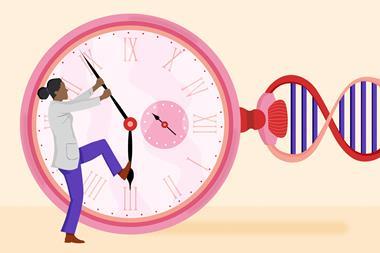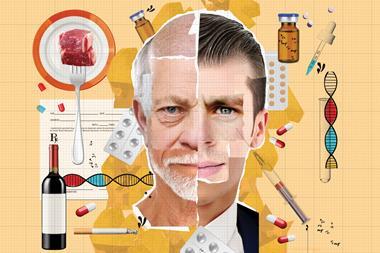How many of us will be healthy enough to ride off into the golden sunset of a long retirement?
There’s no denying it – we’re all getting older. Every day that goes by is another step. But a step closer to what? Hopefully, a long and healthy old age.

I turned 40 last year, and my more youthful colleagues are only too happy to remind me that old age and decay are approaching. I can take their ribbing in good spirit (who had the best 10km time last October, may I ask?) – but a recent episode of lower back pain (around the sacroiliac joint, for those of a medical bent) made more of an impression than a birthday ending in a zero. Is this the beginning of the end of my active life of cycling, squash and running?
How realistic is it for any of us to dream of a long and golden retirement? Lifespans have certainly increased dramatically over the past few decades to an impressive 81 years in the UK. But there are concerns that, in some countries, this increase is slowing – and of course, in many less wealthy countries, they have yet to reach such a level.
A greater worry for many of us, however, is what quality of life we’ll enjoy in our later years: your healthspan (as opposed to lifespan). And that is exactly what interests the scientists who talked to us for our recent feature.
The complex health problems that can affect people in later life concern us all, whether we suffer from them personally, or have to support and care for ailing family members, or simply because society as a whole bears the cost. And that means making difficult decisions about who to care for, what conditions to treat and, crucially, how much to spend. Compassion may be nearly infinite, but resources sadly are not.
Finding ways to help people live longer and healthier lives is therefore a profoundly worthwhile aim. And while the idea of strict calorie limits may be hard to stomach for some, the popularity of both fasting diets and Valter Longo’s ‘fast-mimicking’ programme shows there is an appetite. It might also be a way of keeping the planet healthy for longer. But I imagine most of us would rather pop a pill than lose up to 40% of our daily bread.
As with Alzheimer’s disease (see Understanding Alzheimer’s), one of the dilemmas is the very nature of ageing – nobody can predict today whether I will suffer from chronic health problems in later life. So if suitable medication did exist, would it be worth the cost and potential side effects for me to take it?
That said, of course, there are a few fairly foolproof things we can all do to maximise our chances of a good healthspan: don’t smoke, eat healthily and get plenty of exercise. Now, if only my back would let me get back on that bike…












No comments yet